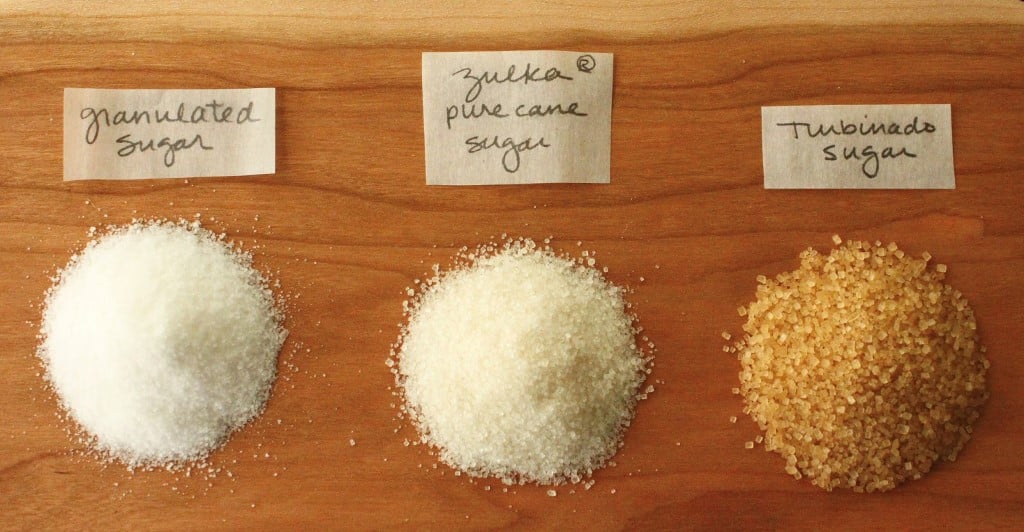The full story about Sugar beet vs sugar cane crop collection methods
The Great Debate: Sugar Beet Vs Sugar Cane - Which Is the Superior Selection for Sugar?
The argument over sugar beet versus sugar cane as the preferred sweetener includes a number of critical aspects. Each offers distinctive advantages and challenges relating to manufacturing, flavor, and health implications. While sugar beet might appeal to those focusing on sustainability, sugar cane has its own cultural and culinary value. As consumers end up being extra aware of their options, the question continues to be: which sugar truly stands out in today's market?
The Beginnings of Sugar Beet and Sugar Cane
Sugar cane has actually been cultivated for thousands of years, mainly in tropical regions, sugar beet arised as a significant choice in cooler climates throughout the 18th century. Sugar cane, native to Southeast Asia, was very first tamed around 8000 BCE and spread out internationally through trade and expedition. Its high sucrose web content made it an important crop, resulting in substantial ranches in areas like the Caribbean and Brazil.
On the other hand, sugar beet was first cultivated in the Mediterranean around the 18th century, specifically acquiring grip in Europe as a reaction to sugar cane scarcities. The plant flourishes in pleasant climates, making it ideal for regions with colder climate. The exploration that sugar might be extracted from beet origins revolutionized sugar manufacturing, particularly during the Napoleonic Wars when profession constraints limited cane sugar accessibility. The surge of sugar beet cultivation marked a critical moment in the background of sugar, providing a regional resource for many nations.
Production Procedures: From Field to Sweetener
The production processes of sugar beet and sugar cane disclose significant differences in growing techniques, collecting methods, and refinement phases. Recognizing these subtleties is important for valuing exactly how each crop adds to the total sugar market. This contrast highlights the special qualities and obstacles associated with both sources of sweetness.

Cultivation Techniques Comparison
Cultivation methods for sugar beet and sugar cane expose distinct techniques that affect their production procedures, from area prep work to last sugar extraction. Sugar beet cultivation typically involves plowing and harrowing to create a great seedbed, complied with by seeding in rows to assist in development. This crop benefits from cooler environments and is usually grown in spring. In contrast, sugar cane is usually grown in furrows with pre-sprouted cane pieces, needing a warm, tropical environment for suitable growth. Cane areas are typically outlined to manage water efficiently, given its demand for considerable irrigation. Both crops are taken care of with particular fertilization and pest control methods tailored to their growth atmospheres, impacting return top quality and effectiveness in sugar removal.

Gathering Approaches Clarified
Efficient gathering approaches for sugar beet and sugar cane play an essential duty in guaranteeing optimal return and high quality of the end product. Sugar beet gathering typically uses mechanized root farmers, which effectively root out the beetroots from the dirt and separate them from the foliage. This approach reduces damages to the beets and decreases labor costs. On the other hand, sugar cane harvesting may make use of either manual work or machinery, depending on the area and range of production. Mechanical farmers cut the cane at the base and usually remove the leaves, enhancing the procedure for bigger fields. Both methods call for careful timing to assure the plants are harvested at peak sweet taste, affecting the high quality of the final sugar item.
Refinement Process Distinctions
While both sugar beet and sugar cane undertake extensive improvement procedures to transform their raw forms into usable sweeteners, the approaches utilized differ considerably. Sugar beet refinement starts with washing and cutting the beets right into slim cossettes, adhered to by diffusion, where warm water extracts sucrose. The resulting juice is after that detoxified, concentrated, and crystallized. On the other hand, sugar cane handling entails crushing the stalks to extract juice, which is after that cleared up making use of lime and heat to eliminate pollutants. The cane juice is evaporated to develop syrup before condensation. Inevitably, while both procedures aim to create white sugar, the distinct methods highlight the special qualities of each source and their implications for taste and purity in the final item.
Nutritional Profiles: What's in Your Sugar?
The dietary accounts of sugar beet and sugar cane present distinctive distinctions worth checking out. This comparison consists of facets such as calorie material, mineral and vitamin presence, and variants in glycemic index. Comprehending these elements can offer understandings into how each sweetener might affect general health and wellness.
Calorie Content Contrast
Understanding the calorie content of sugar beet and sugar cane is crucial for those mindful of their nutritional choices. Both sugar primarily contain sucrose, adding a comparable caloric worth. Usually, sugar beet consists of approximately 387 calories per 100 grams, while sugar cane has concerning 390 calories per the exact same quantity. The slight difference in caloric content might not greatly impact most diet regimens; nevertheless, it is amazing for those very closely monitoring their caloric consumption. Furthermore, both sugar resources give energy yet do not have vital nutrients, making them mostly resources of vacant calories. As a result, individuals seeking much healthier choices may wish to think about these factors when choosing in between sugar beet and sugar cane as their chosen sugar.

Mineral and Vitamin Content
Calorie web content supplies just a part of the image when reviewing sugar beet and sugar cane. Both resources of sugar vary considerably in their mineral and vitamin profiles. Sugar beetroots are remarkably rich in vital nutrients, including potassium, magnesium, and iron. They additionally include percentages of vitamins such as B6 and folate, adding to their nutritional worth. In contrast, sugar cane supplies a various set of advantages, having calcium, phosphorus, and traces of B vitamins. While neither option is a substantial resource of vitamins and minerals contrasted to whole foods, sugar beets might have a slight edge due to their greater mineral web content. Ultimately, consumers seeking nutritional gain from sweeteners should consider these distinctions in profiles.
Glycemic Index Distinctions
Glycemic index plays a crucial duty in assessing just how different sweeteners impact blood sugar levels. Sugar beet and sugar cane display notable distinctions in their glycemic reactions. Usually, sugar beet has a reduced glycemic index compared to sugar cane, resulting in a slower and steadier Get More Information surge in blood glucose levels after intake. This attribute might make sugar beet a more effective alternative for people taking care of diabetes mellitus or those looking for to maintain steady power degrees. On the other hand, sugar cane tends to create an extra quick spike in blood glucose, which could bring about quicker power crashes. Comprehending these differences is substantial for customers intending to make educated nutritional options concerning sugar and their influence on overall wellness.
Environmental Effect: Sustainability Factors To Consider
While both sugar beet and sugar cane are necessary resources of sugar, their ecological effects and sustainability considerations vary noticeably. Sugar beets, primarily expanded in pleasant areas, generally call for less water and can be grown in varied climates. They also gain from plant turning practices, which improve dirt health and minimize the requirement for synthetic fertilizers. Intensive farming of sugar beets can lead to dirt exhaustion and chemical use.
On the other hand, sugar cane flourishes in exotic environments and typically requires considerable water resources for watering (Sugar beet vs sugar cane). The monoculture nature of sugar cane farming can worsen dirt disintegration and biodiversity loss. Furthermore, the burning of cane fields prior to harvest releases carbon discharges and adds to air pollution. Both crops deal with obstacles pertaining to environment adjustment, however their varying cultivation practices greatly affect their overall sustainability accounts. The option in between sugar beet and sugar cane entails considering these ecological effects carefully.
Taste and Culinary Makes Use Of: Which Sweetener Reigns Supreme?
The choice in between sugar beet and sugar cane expands past environmental factors to consider to encompass taste and cooking applications. Sugar beet, commonly perceived as having a slightly various taste account, often tends to be much less sweet than sugar cane. This refined difference can affect its use in dishes, especially in baked goods where a neutral sweetness is preferred.
Alternatively, sugar cane is celebrated for its distinct, abundant, and much more complex flavor, making it a recommended option for drinks and desserts - Sugar beet vs sugar cane. Its all-natural molasses web content can enhance the depth of flavors in various meals
In food preparation, sugar cane's adaptability beams through in sauces, glazes, and confections, while sugar beet is generally located in processed foods and sweeteners like granulated sugar. Eventually, the decision between the two sweeteners typically hinges on specific taste preferences and particular culinary applications, with each offering one-of-a-kind benefits in the kitchen.
Health Implications: Sugar Beet Vs Sugar Cane
Both sugar beet and sugar cane have distinctive health and wellness effects that can affect customer selections. Sugar beet vs sugar cane. Sugar beet is usually concerned for its higher fiber material, which can assist digestive health. In addition, it contains certain anti-oxidants that might add to overall wellness. On the other hand, sugar cane is abundant in nutrients such as calcium, potassium, and magnesium, providing some mineral advantages
However, both resources largely include sucrose, which can bring about comparable health problems when eaten exceedingly, such as obesity, diabetes, and heart problem. The processing techniques likewise differ; sugar beet is usually improved a lot more intensively, potentially resulting in a loss of specific nutrients. Customers concerned regarding ingredients may favor sugar cane, as it frequently undertakes much less processing. Ultimately, recognizing these health ramifications can guide people toward making educated choices regarding their sugar choices.
Customer Preferences: Fads and Insights
Consumer choices for sugar have evolved considerably in recent times, influenced by health trends, ecological worries, and nutritional choices. Raised awareness of the adverse health impacts related to too much sugar usage has actually led many customers to look for alternatives. This change has triggered a growing interest in all-natural sweeteners, with sugar beet and sugar cane going to the forefront of conversations.
Study indicates that consumers are increasingly favoring sugar beet because of its viewed environmental benefits, as it is often grown closer to refining plants, decreasing transportation discharges. Conversely, sugar cane is typically related to exotic regions and might bring assumptions of sustainability obstacles.

Regularly Asked Questions
How Do Sugar Beet and Sugar Cane Affect Blood Sugar Level Levels?
Sugar beet and sugar cane both contain sucrose, which can boost blood sugar levels. The effect greatly relies on specific metabolism and usage amounts, yet both resources add likewise to blood glucose responses in most cases.
Which Sweetener Is Much Better for Cooking and Food preparation?
When reviewing sweeteners for baking and cooking, one have to take into consideration appearance, flavor, and wetness retention. Sugar beet and sugar cane both offer unique high qualities, with sugar cane frequently favored for its richer flavor profile in culinary applications.
Can Sugar Beet or Cane Be Utilized in Vegan Diets?
Both sugar beet and sugar cane can be used in vegan diets. They are plant-derived view website sugar, making them suitable for people looking for vegan-friendly choices without animal products, guaranteeing honest selections in their culinary methods.
What Are the Historic Usages of Sugar Beet and Cane?
Historically, sugar beet and cane offered as necessary resources of sweetness, with cane cultivated in exotic regions and article beet in temperate areas. Both have been important to various societies, economies, and culinary customs throughout history.
Exist Any Type Of Alternatives to Sugar Beet and Cane?
Alternatives to sugar beet and cane include agave nectar, honey, maple syrup, and fabricated sweeteners like aspartame and sucralose. These substitutes use varying flavors and health benefits, interesting diverse dietary preferences and constraints.